Institutional Learning Outcomes
Institutional Learning Outcomes
NICC recently launched the T.R.I.B.A.L Attribute system to provide a framework to assessing Institutional Learning Outcomes through co-curricular events. This culturally grounded assessment practice was featured in a publication by the American Indian College Fund (AICF, 2024, p. 12-13).
Attributes
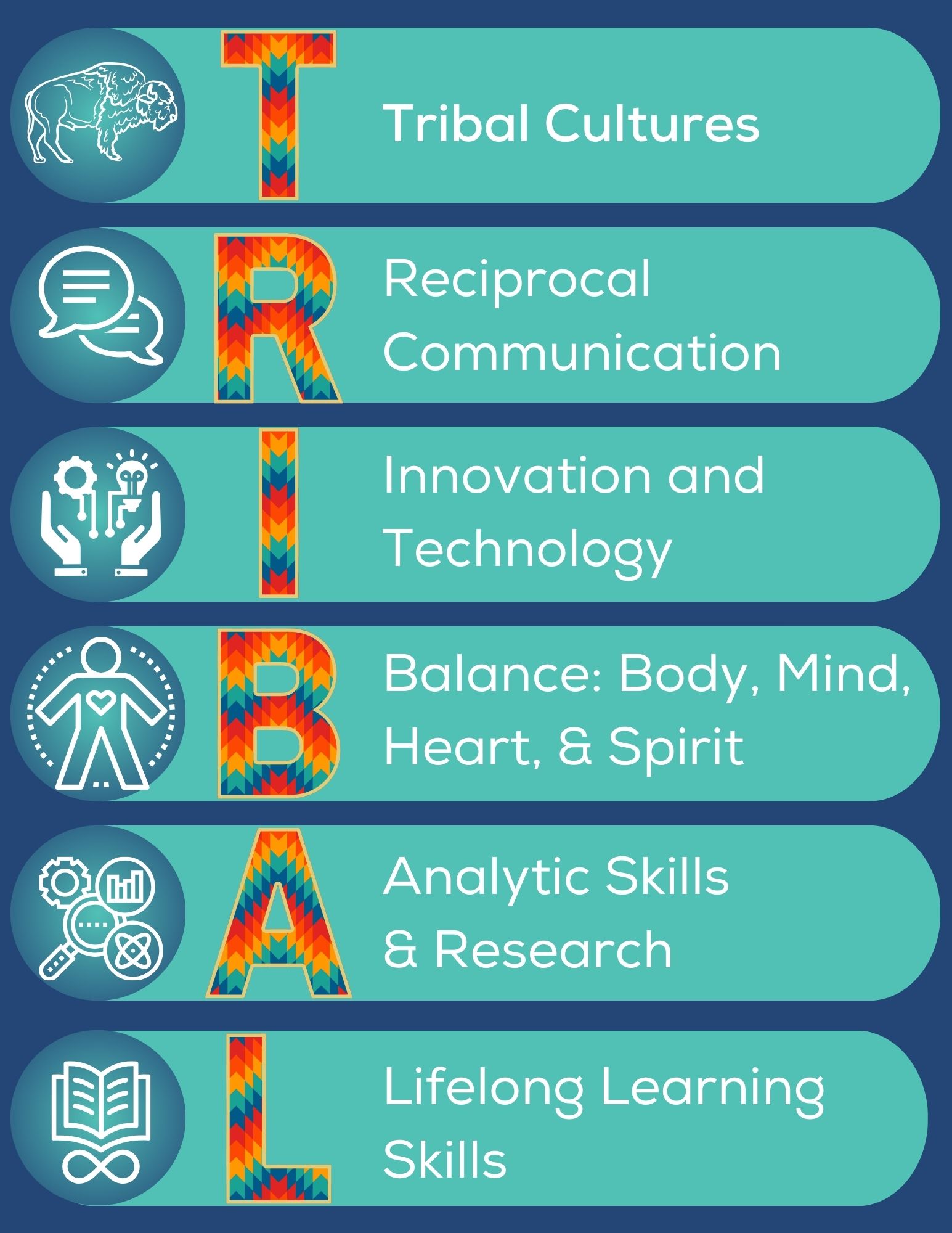
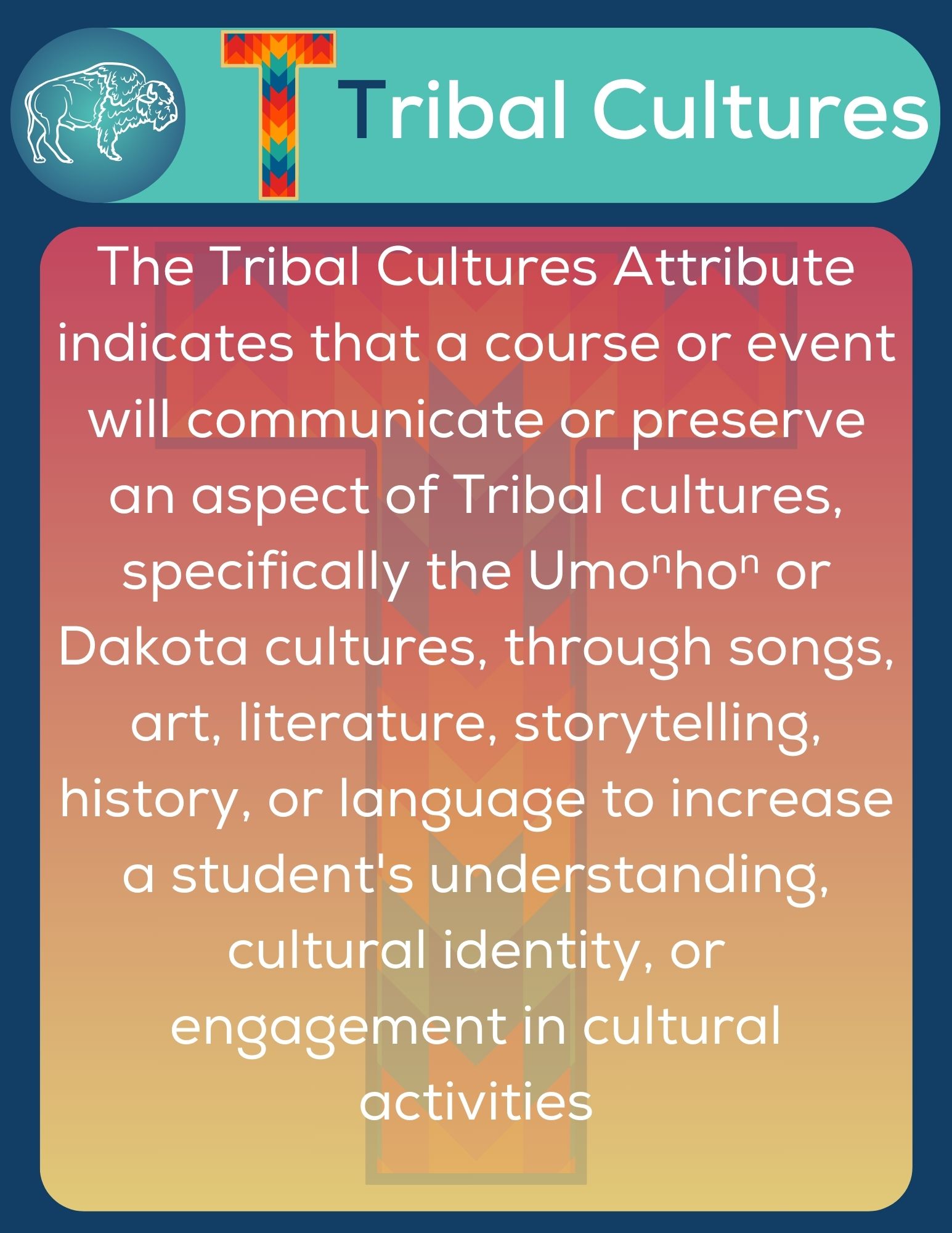
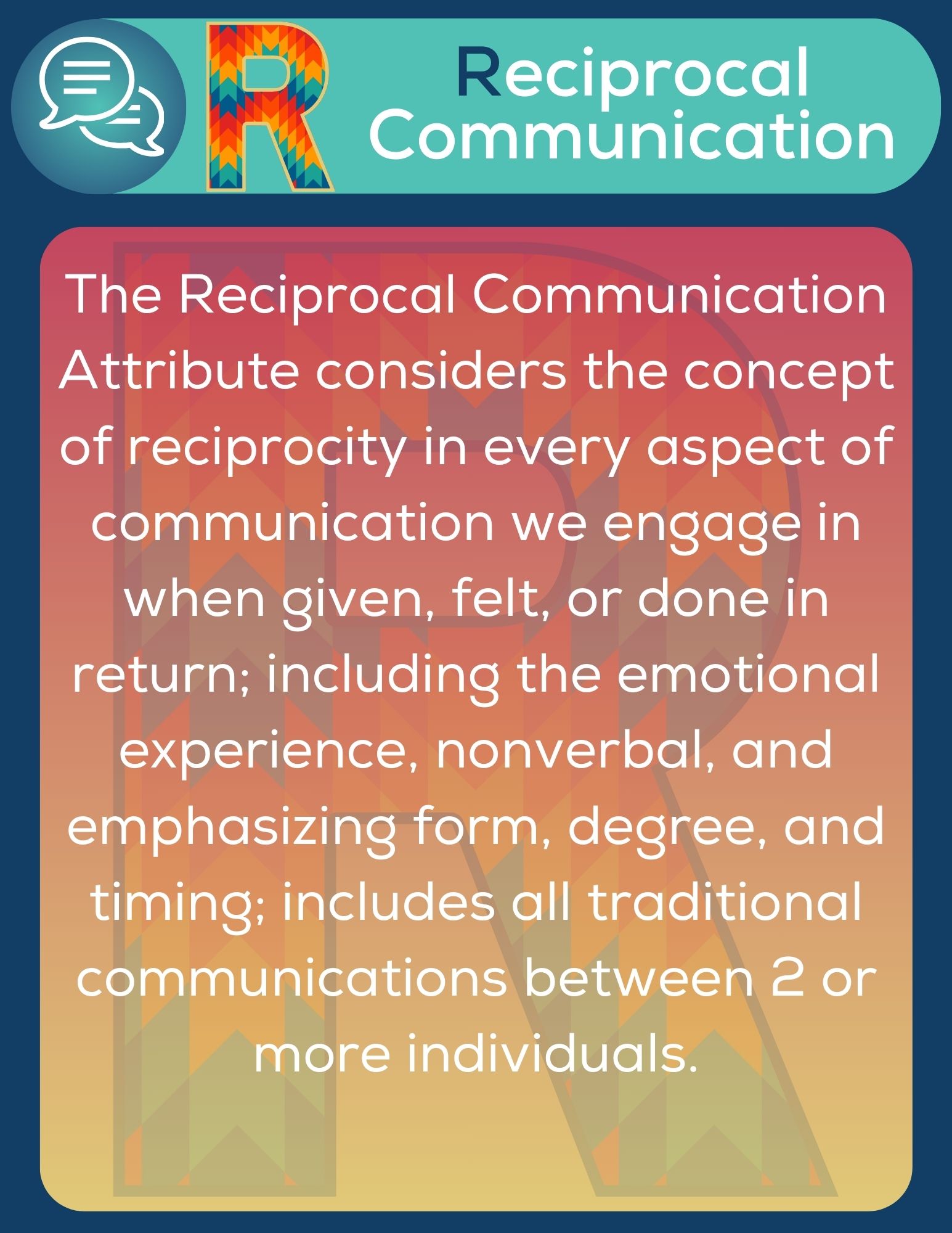
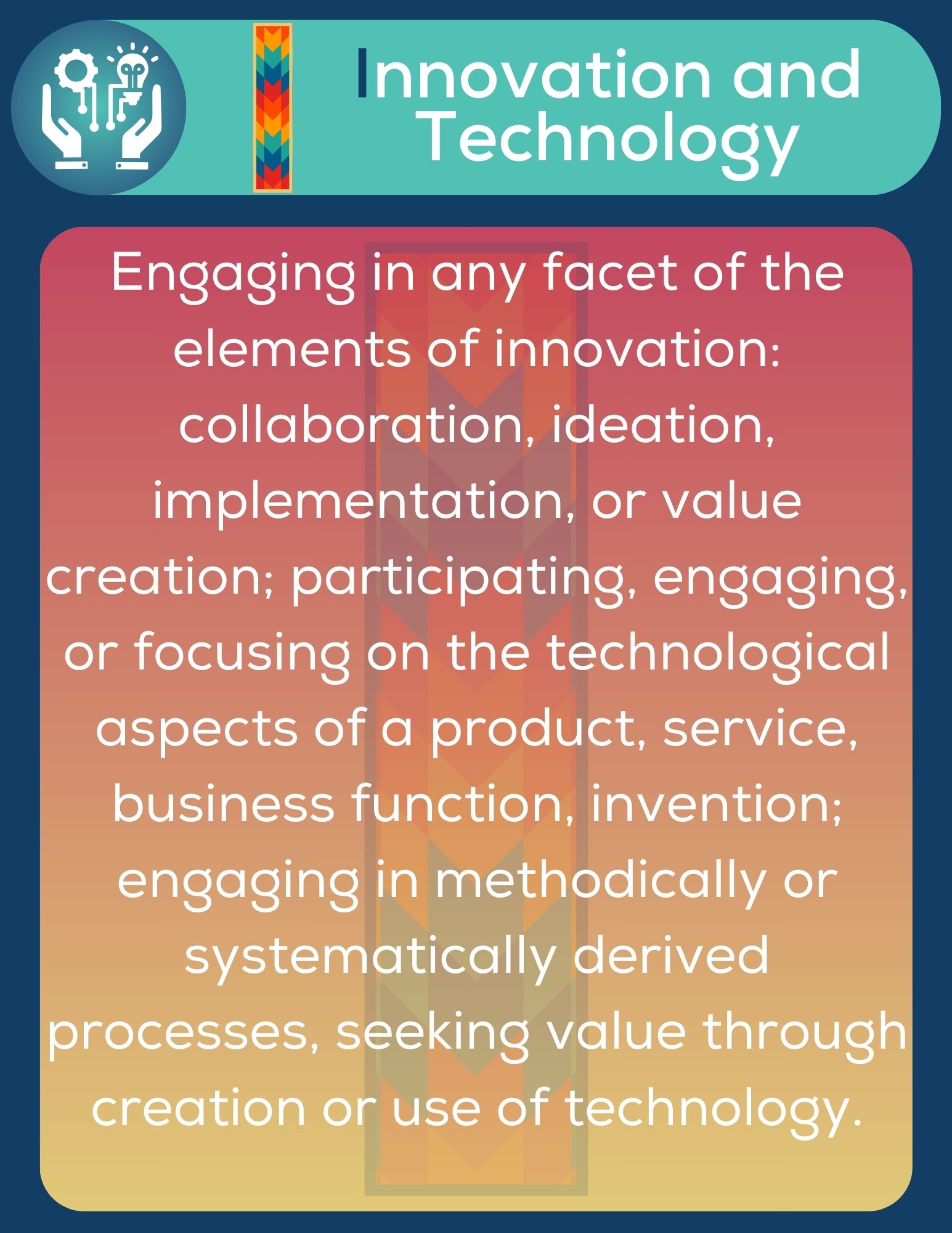


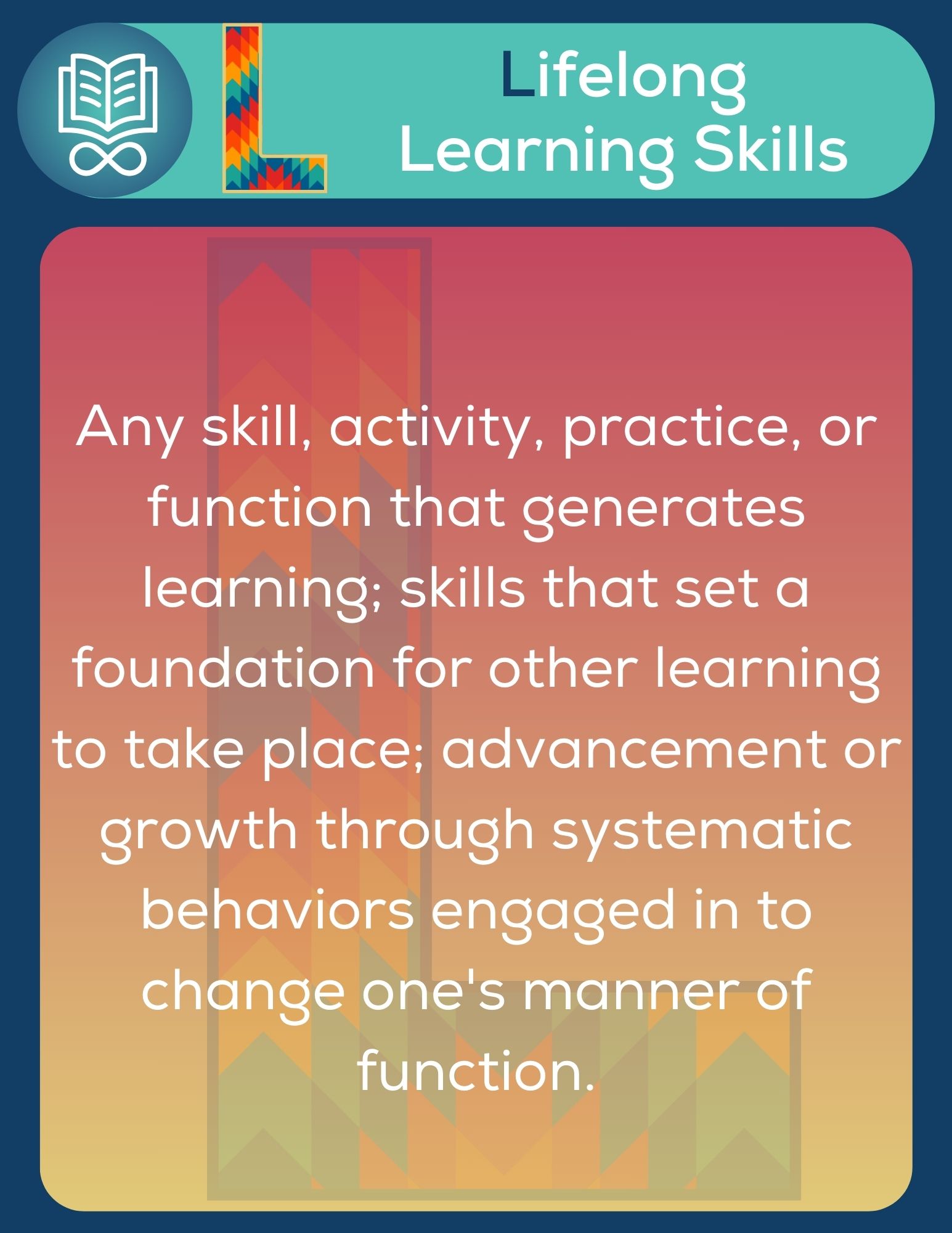
Data
- Check back here for annual reports on each attribute!
Future Developments
In the future, NICC plans to expand this framework to encompass general education assessment as well. Below is the alignment with our institutional learning outcomes (ILOs):
- T- Tribal Cultures replaces ILO 1,
- R-Reciprocal Communication replaces ILO 2,
- I- Innovation and Technology replaces ILO 4,
- B- Balance: Body, Mind and Spirit replaces part of ILO 5,
- A-Analytic Skills and Research replaces ILO 3; and
- L- Lifelong Learning replaces part of ILO 5 and provides an opportunity to measure how well we are doing with our mission statement.
GENERAL EDUCATION CORE COURSES
The Associate of Arts, Associate of Science, and the Associate of Applied Science degree programs have general education requirements that provide opportunities for students to practice skills needed to attain our Student Learning Outcomes and develop in these areas. The core course requirements are provided by degree on the following page. Students must pass a given course with a “D” or better in order for it to count as a core requirement.
NOTE: No general education core course can be simultaneously used for a required course in the major concentration area of study, unless specified in the degree requirements.
|
General Education Outcome |
Categories for this outcome |
Approved Courses |
|
ILO 1: Native Cultures |
Native Languages (3-4 credits) |
NASP 1410, 1420, 1510, 1520, 2430, 2440, 2530, 2540 |
|
Native History (3 credits) |
NASP 1010, 1020, 1030, 1040, 1080, 2110, 2120, 2200, 2210, 2220, 2230, 2240, or 2300 |
|
|
ILO 2: Communication |
Written Communication (6 credits, AAS majors: 3 credits) |
ENGL 1010, 1020 |
|
ENGL 1020, 1040, 1050, BSAD 2050 |
||
|
Oral Communication (3 credits) |
SPCH 1110, BSAD 2050, NASP 2430, 2440, 2530, 2540 |
|
|
ILO 3: Critical, Analytical & Creative Thinking Skills |
Arts & Humanities (3-4 credits) |
ARTS 1010, 1050, 1060, 1100, 1200, 1300, 1400, BSAD 2310, ECED 1050,1160, ENGL 1040, 1050, 1150, 2100, 2170, HIST 1110, 1111, 2010, 2020, NASP 1050, 1080, 1090, 1100, 1130, 1140, 1410, 1420,1510, 1520, 2110, 2300, 2330, 2340, 2350, 2430, 2440, 2530, 2540, MUSC 1010, PSYC 1810, 2000, 2030, 2500, SOCI 1010, 1400, SPAN 1010, 1020, 2010, 2020 |
|
Quantitative Reasoning (3-4 credits) |
ACCT 1200, 1210, ENTR 2030, MATH 1020, 1060, 1110, 1150, 1600, 2170, SOCI 2880 |
|
|
Lab Science (4 credits, GSS majors: 8 credits) |
AGRI 1010/1014, AGRI 1150/1154, BIOS 1010/1014, 1110/1114, 1200/1204, 1210/1214, 2250/2254, 2260/2264, 2460/2464, CHEM 1050/1054, 1090/1094, 1100/1104, PHYS 1100/1104, 1200/1204 (4 credits) |
|
|
ILO 4: Research and Investigative Skills, Diversity |
Technology (1-3 credits) |
INFO 1010, 1011, 1012, 1013, 1200, 1600, 2100, 2150, 2200, 2300, 2400, 2420, 2500 |
|
Global Awareness (3-4 credits) |
BIOS 1200, 1204, 2030, BSAD 2310, 2520, CHEM 1050, 1054, CRIM 1010, 1020, ECED 1160, 2050, 2070, ECON 2110, EDUC 2030, 2050, 2070, ENGL 1050, GEOG 1010, HIST 1110, 1111, 2010, 2020, HMSV 2150, IEVH 1010, 2020, NASP 1070, 2010, 2120, 2300, 2330, 2810, PHYS 2000, POLS 1600, SOCI 1010, 1400, 2010, 2150, SPAN 1010, 1020, 2010, 2020 |
|
|
ILO 5: Wellness |
College Skills (3 credits) |
EDUC 1010 (2 credits) |
|
EDUC 1020 (1 credit) or ECED 2080 OR 2090 (2 credits) |
||
|
Health and Wellness (4 credits) |
AGRI 1050, 1048, ECED 1260, ENGL 1040, HLTH 1010, 1020, 1040, 1041, 1042, 1043, 1044, 1045, 1046, 1047, 2300, 2310, 2340, NASP 1140, NURA 1110, 1190 |
*Degree programs may require specific courses to meet general education requirements. This information can be found on degree planning forms. Please consult with your Faculty Advisor.
